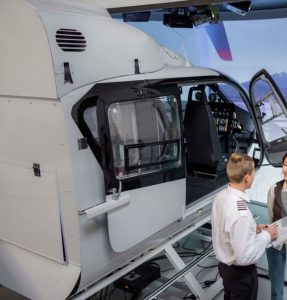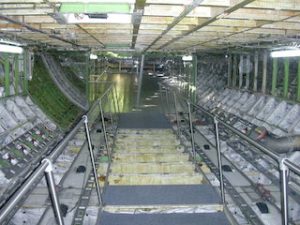A Flying School Can Fast-Track A Pilot’s Career
 Embarking on a career as an international airline pilot is a dream for many aviation enthusiasts. The allure of soaring through the skies, exploring different countries, and being part of a global network of professionals is undeniable. However, transforming this dream into reality requires more than just passion and ambition. It involves a significant investment in education, training, and professional development. This is where flying schools play a pivotal role. This article explores how enrolling in a flying school can fast-track your international airline pilot career, breaking down the critical aspects and benefits of professional flight training.
Embarking on a career as an international airline pilot is a dream for many aviation enthusiasts. The allure of soaring through the skies, exploring different countries, and being part of a global network of professionals is undeniable. However, transforming this dream into reality requires more than just passion and ambition. It involves a significant investment in education, training, and professional development. This is where flying schools play a pivotal role. This article explores how enrolling in a flying school can fast-track your international airline pilot career, breaking down the critical aspects and benefits of professional flight training.
Path to becoming an airline pilot
Before delving into the role of a flying school, it is essential to understand the typical path to becoming an international airline pilot. The journey generally involves several key stages:
- Educational foundation: A solid educational background, often including a high school diploma or equivalent, is required. Many aspiring pilots also pursue a degree in aviation or a related field.
- Private Pilot License (PPL): The first major milestone is obtaining a Private Pilot License, which allows you to fly privately and is a prerequisite for more advanced training.
- Commercial Pilot License (CPL): The CPL is essential for those looking to fly for compensation or hire. This stage involves more rigorous training and flight hours.
- Instrument rating: This qualification allows pilots to fly in a wider range of weather conditions by relying on instruments rather than visual cues.
- Multi-engine rating: This rating is required for flying aircraft with more than one engine, which is typical for commercial flights.
- Airline Transport Pilot License (ATPL): The pinnacle of pilot certification, the ATPL is necessary for commanding commercial airliners and typically requires substantial flying experience.
- Type ratings: Specific training for different aircraft types, which is crucial for operating various commercial airliners.
Role of a flying school in fast-tracking your career
Flying schools are specialized institutions that provide the essential training and certification needed to become a professional pilot. Here’s how they play a critical role in accelerating your path to an international airline pilot career:
1) Structured training programs
Flying schools offer structured training programs designed to cover all the necessary qualifications and certifications efficiently. These programs are tailored to meet industry standards and often follow a rigorous curriculum that includes both theoretical knowledge and practical flight training.
A well-structured program can significantly reduce the time required to complete each stage of pilot training. Instead of piecemeal learning, where you might have to navigate through various sources and instructors, a flying school provides a cohesive learning experience. This organised approach ensures that you acquire the skills and knowledge needed in a logical and efficient manner.
2) Access to advanced flight simulators
Modern flying schools are equipped with state-of-the-art flight simulators that replicate real-world flying conditions. These simulators are invaluable for training because they allow students to practice maneuvers, emergency procedures, and complex flight scenarios in a controlled environment.
Using advanced flight simulators helps you build confidence and proficiency without the risks associated with actual flight training. This technology also accelerates the learning process by enabling you to repeatedly practice and perfect your skills.
3) Experienced instructors
One of the most significant advantages of attending a flying school is access to experienced instructors. These professionals bring a wealth of knowledge and real-world experience to their teaching. Their guidance is crucial in navigating the complexities of flight training, from mastering flight maneuvers to understanding aviation regulations and safety protocols.
Experienced instructors also provide valuable insights into the airline industry, including tips for passing airline interviews and adapting to the unique demands of international flying. Their mentorship can be instrumental in shaping your career trajectory.
4) Comprehensive curriculum
A flying school’s curriculum is designed to cover all aspects of pilot training comprehensively. This includes not only flying skills but also aviation theory, navigation, meteorology, and regulations. A well-rounded education ensures that you are well-prepared for the various challenges of an international airline pilot career.
Moreover, many flying schools offer additional courses and workshops focusing on specific areas, such as CRM (Crew Resource Management) and advanced flight techniques. These supplementary training opportunities can enhance your skills and make you a more competitive candidate for airline positions.
5) Networking opportunities
Flying schools often have strong connections with airlines and aviation organizations. They may facilitate job placements, internships, or networking events that connect students with industry professionals. These connections can be invaluable for finding job opportunities and gaining insights into the industry.
Networking with alumni and industry contacts through a flying school can open doors to job opportunities and provide support as you navigate your career. Additionally, many schools have partnerships with airlines for direct pathways to employment, streamlining the process from graduation to securing a position with a major airline.
6) Accelerated training options
For those looking to fast-track their career, many flying schools offer accelerated training programs. These programs are designed to condense the training timeline, allowing students to complete their certifications more quickly.
Accelerated programs are intensive and require a significant time commitment, but they can be ideal for motivated individuals who want to enter the workforce as soon as possible. This accelerated path can be particularly beneficial for those who are committed to a career in international aviation and are eager to start flying professionally.
7) Customised training paths
Flying schools often offer customized training paths based on individual goals and needs. Whether you’re aiming to work for a specific airline, fly a particular type of aircraft, or specialize in a certain area of aviation, a flying school can tailor its training to help you achieve your objectives.
Custom training paths ensure that you receive focused instruction that aligns with your career aspirations. This personalised approach can enhance your expertise in areas that are most relevant to your desired career path, making you a more attractive candidate to potential employers.
8) Support with licensing and certification
Navigating the licensing and certification process can be complex and time-consuming. Flying schools provide essential support in obtaining the necessary certifications and licenses, including guidance on paperwork, examinations, and regulatory requirements.
The school’s administrative support ensures that you meet all the necessary criteria and deadlines, reducing the stress associated with the certification process. Their experience in dealing with regulatory bodies can also help you avoid common pitfalls and streamline the process.
Choosing the right flying school
Selecting the right flying school is a critical decision that can significantly impact your career trajectory. When evaluating flying schools, consider factors such as:
- Reputation: Research the school’s reputation within the aviation industry. Look for reviews from former students and check if the school has any affiliations with airlines or aviation organisations.
- Accreditation: Ensure the school is accredited by relevant aviation authorities and adheres to industry standards.
- Facilities: Assess the quality of the facilities, including aircraft, simulators, and classrooms. Modern, well-maintained equipment is crucial for effective training.
- Instructor experience: Investigate the qualifications and experience of the instructors. Experienced, knowledgeable instructors can make a significant difference in your training.
- Career support: Evaluate the school’s career support services, including job placement assistance, internships, and networking opportunities.
- Cost and financing: Consider the cost of the training programs and available financing options. While quality education is an investment, it’s essential to find a program that fits your budget.
Fast-track your flying career
A flying school is more than just a place to learn how to fly; it is a crucial partner in fast-tracking your international airline pilot career. By offering structured training programs, access to advanced simulators, experienced instructors, and comprehensive support, flying schools provide the foundation needed to launch a successful career in aviation.
Choosing the right flying school can significantly impact your career trajectory, making it essential to conduct thorough research and select a school that aligns with your goals and aspirations. With the right training and support, you can accelerate your path to becoming an international airline pilot and embark on a rewarding career in the skies.










